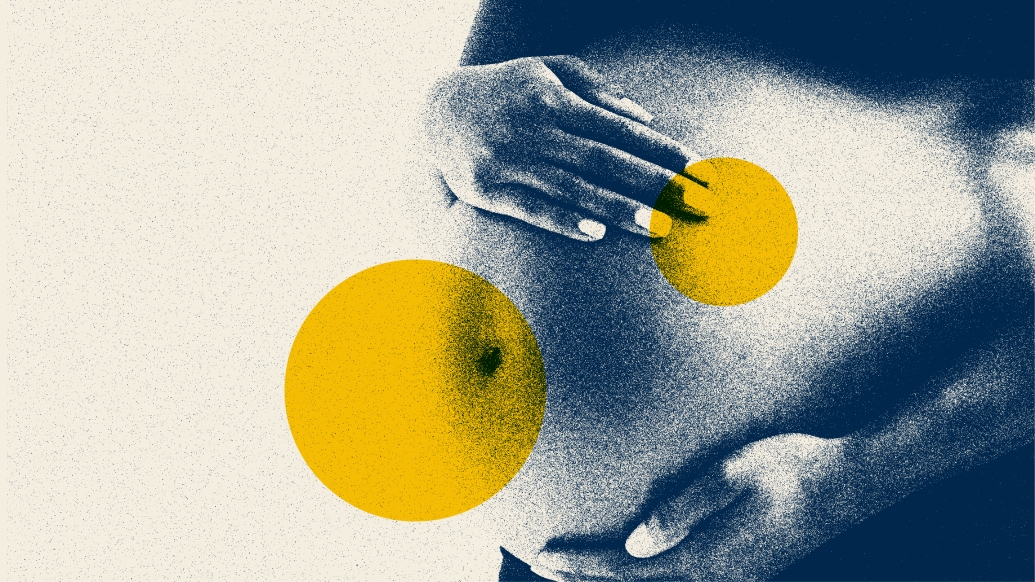Lack of financial support and staff education are most prominent barriers found in national survey
5:00 AM
Author |

A pregnancy that ends in stillbirth just before or during delivery can have devastating impacts – but a study finds significant service gaps between hospitals in how they help birthing parents.
In general, more support is available at larger, more urban and teaching-based hospitals than at smaller, more rural hospitals with lower birth volumes, the study finds.
The survey of clinicians at almost 300 United States hospitals assessed current stillbirth bereavement care practices and analyzed how they vary across those organizations.
The study includes data from hospitals in 48 states, Guam, and the District of Columbia.
Published in the Maternal and Child Health Journal, it was conducted by researchers led by Katherine J. Gold, M.D., M.S.W., M.S., an associate professor in the Department of Family Medicine and the Department of Obstetrics and Gynecology at the Michigan Medicine, the University of Michigan’s academic medical center.
The team found that one-third of surveyed hospitals reported staff were allowed to take protected time to provide perinatal bereavement care to patients who had suffered a stillbirth.
Of 17 bereavement topics, only six were routinely addressed by at least two-thirds of hospitals.
The team asked hospitals to share what services, if any, they offered patients following a stillbirth, defined as loss of a pregnancy in its later stages up to delivery.
The survey asked about topics such as normal grieving, risks for mental health or substance use following loss, impact of the loss on a marriage or relationship, and impact of the loss on a father.
Barriers to offering adequate care, which were more pronounced at small hospitals, included financial limitations and lack of staff education.
Larger hospitals were more likely to have staff who could address stillbirth bereavement-related topics and refer patients to community bereavement resources.
SEE ALSO: ‘It’s being part of a group no one wants to be a part of’
The team found that most hospitals provided tangible memorabilia after a loss, such as a memory box, handprints or footprints, or a card or sheet that included the stillborn infant’s weight.
Almost three-quarters of surveyed hospitals reported routinely providing education about the normal grieving process.
Two-thirds (68.9%) offered families a hospital contact for follow-up care. However, only half addressed risks for mental health or substance use (48.4%); grief of fathers or partners (54.7%); or the impact of loss on marriage or relationships (46.4%).
Only a third of surveyed hospitals routinely offered couples information on sex and intimacy education post-loss (37.0%) or guidance on issues related to returning to work (31.1%).
Approximately 56% offered parents resources to connect with other families and about 50% provided online support resources.
“While care and education suffer from lack of funding and limited protected time at most institutions, the intense and traumatic nature of stillbirth make it essential that parents are cared for by sensitive and well-trained staff during their delivery stay,” Gold and her colleagues wrote.
Gold added, “One of the most shocking things to me in this survey was that hospitals report they are often not talking to parents about some of the most basic elements of grief and loss: normal bereavement, impacts on relationships, how to tell siblings, or how to return to work. I think that was perhaps the most disappointing finding for me was that we often aren’t helping parents anticipate what to expect once they leave the hospital.
“We also need those of us working in larger hospitals to take responsibility to help share resources with smaller institutions so that parents can get similar bereavement support, no matter the volume of the hospital,” she said.
Gold recently joined the Stillbirth Working Group of Council that advises leaders of the Eunice Kennedy Shriver National Institute of Child Health and Human Development.
In addition to Gold, the study’s authors are clinical research coordinator Martha E. Boggs B.S., C.C.R.C., and statistician Melissa A. Plegue, M.A.
Paper cited: “Gaps in stillbirth bereavement care: A cross-sectional survey of U.S. hospitals by birth volume,” Maternal and Child Health Journal. DOI: 10.1007/s10995-023-03861-8
Sign up for Health Lab newsletters today. Get medical tips from top experts and learn about new scientific discoveries every week by subscribing to Health Lab’s two newsletters, Health & Wellness and Research & Innovation.
Sign up for the Health Lab Podcast: Add us on Spotify, Apple Podcasts or wherever you get you listen to your favorite shows.

Explore a variety of health care news & stories by visiting the Health Lab home page for more articles.

Department of Communication at Michigan Medicine

Want top health & research news weekly? Sign up for Health Lab’s newsletters today!





